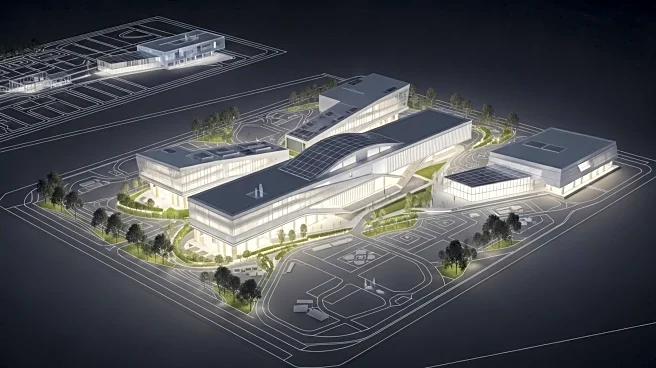What's Happening?
The Department of Agriculture, Environment and Rural Affairs (DAERA) has initiated a £74m framework for the redevelopment of the Loughry Campus at the College of Agriculture, Food and Rural Enterprise (CAFRE). The project, which received planning consent in September 2024, involves a phased approach to demolish existing buildings and construct new facilities, including teaching spaces, laboratories, and residential accommodations. The framework spans six years, with potential extensions up to 12 years to ensure minimal disruption to campus operations. DAERA aims to retain the successful contractor for subsequent phases, contingent on performance and cost agreements.
Why It's Important?
The redevelopment of the Loughry Campus is a significant investment in agricultural education and infrastructure, enhancing the capacity for research and learning in Northern Ireland. The project supports the modernization of educational facilities, aligning with DAERA's goals to improve agricultural practices and sustainability. By maintaining operational continuity during construction, the initiative ensures ongoing educational activities, benefiting students and staff. The framework's emphasis on performance monitoring and supplier accountability reflects a commitment to quality and efficiency in public sector projects.
What's Next?
Expressions of interest for the project are due by October 7, 2025, with tender documents available through the eTendersNI portal. DAERA will evaluate submissions and select contractors based on performance indicators, ensuring the project's successful execution. The construction phase is scheduled to begin in March 2026, with completion expected by August 2032. The framework allows for flexibility in contractor selection, enabling DAERA to address underperformance and re-tender phases if necessary.
Beyond the Headlines
The redevelopment project underscores the importance of strategic planning in public infrastructure projects, balancing the need for modernization with operational continuity. It highlights the role of government agencies in fostering educational advancements and supporting regional development through targeted investments. The project's phased approach and performance-based contractor retention model serve as a blueprint for future public sector initiatives.








